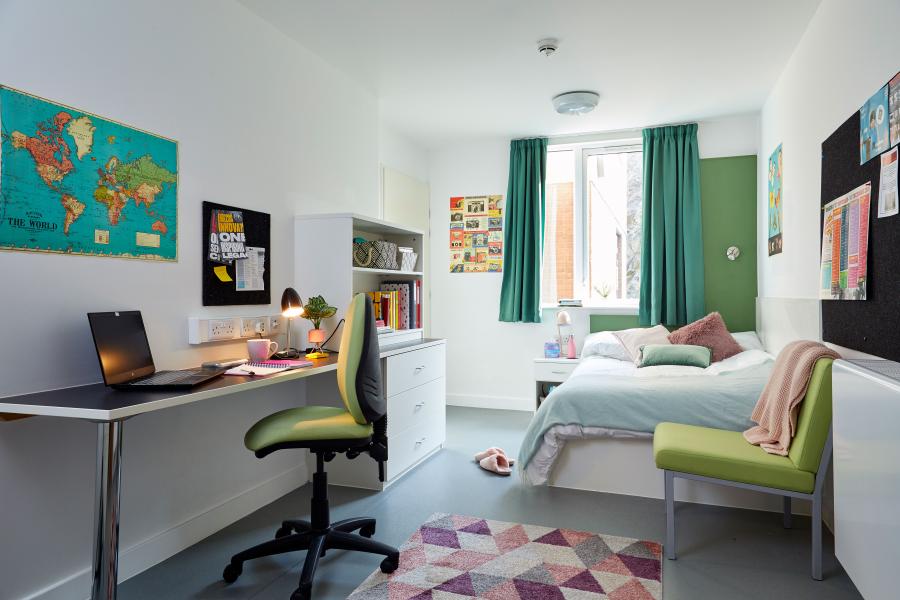As a parent or guardian, your questions and concerns about choosing a university may be slightly different from those of your child or dependant, but don’t worry, we have some helpful advice to get you started!
Ten top tips
- Start researching early – years 12 and 13 go quickly so it’s important to start as soon as you can.
- Know the deadlines – depending on the course, some UCAS application deadlines are almost a year before the course is due to start.
- Ask universities how they supported their students through Covid-19 – this may provide insight into how students are cared for and what their university experience will be like.
- Keep informed – subscribe to emails for parents and guardians, order prospectuses and follow UCAS and university pages on social media for the latest news and advice.
- Attend fairs and (virtual) open days – it’s a great opportunity to ask questions.
- Let them do the talking – peer to peer with student guides at virtual and in-person open days.
- Help them make their own decisions – talk to them about what they want from the university experience.
- Research student finance – get a rough idea of how much they’ll need and if they’re eligible for any loans, grants, scholarships and/or bursaries so your child or dependant can make the best arrangements to fund their studies.
- Check entry requirements – to make sure they match your child or dependant’s expected grades.
- Accommodation – where students live is important to their wellbeing and peace of mind so it’s important to research what accommodation universities can provide, if any; for example, can they guarantee students a place in halls or will they have to source private accommodation? Also consider location, quality of accommodation and facilities.
Courses - finding the perfect match
Different universities often offer the same courses and qualifications but your child or dependant’s experience will vary depending on where they choose to study. Before deciding, they should be encouraged to research:
- Course content – which modules are included?
- Methods of teaching – are there practical elements to the course or is it solely lecture-based?
- Who’ll be teaching the course – is it lecturing staff, a mix of teaching and research staff, or PhD students? It’s worth checking the university’s results in the Teaching Excellence Framework, which was introduced to recognise excellent teaching.
- Contact time – will they have the opportunity to meet with their lecturers outside of lectures?
- Methods of assessment – will there be written exams, practical exams or continuous assessment, or a combination of all / some?
- Placement year – can they gain work experience, study abroad or start an internship?
For example, at Bangor University the methods of teaching varies from course to course but there’s often a blend of practical and lecture based learning with the opportunity to meet lecturers one-to-one.
We have a Gold Award, the highest rating possible, in the national Teaching Excellence Framework (TEF) for delivering consistently outstanding teaching, learning and outcomes for our students. And we’re proud to have recently welcomed naturalist, explorer and TV presenter Steve Backshall to our teaching team.
Students also have the opportunity to do a placement year to gain work experience home or abroad.
The role of rankings and ratings
A ranking should only be used to confirm the impression you already have of a university. They’re helpful in guiding a decision but the choice shouldn’t be based solely on how a university ranks in a league table. It’s first important to understand how the rankings are decided. For example, the criteria might include the amount of money the university spends per student, but how much of this is spent in the department your child or dependant is considering?
Accommodation - a home from home
Accommodation varies a lot, not just between universities, but also within a university – as does the price. It’s good to research what options are available, discuss what your child or dependant is looking for and how much you and/or they are willing to pay. If there are any medical reasons that need to be considered with accommodation, sharing relevant information and documentation early can help.

It’s also important to research what accommodation is offered by universities. Do they provide first year students with a place in halls or are students expected to source their own private accommodation? We recommend that first year students live in halls to help them settle in and make new friends. To support this, we offer all first year students who hold Bangor as their Firm Choice a guaranteed place in one of our award winning halls, rated 3rd place in the UK for halls and student accommodation in the What Uni Student Choice Awards in 2023.
Location, location, location
Students often overlook that they’ll be living in their chosen location for at least three years. Choosing where to study is just as important as the qualification because it impacts everything outside of the course. If your child or dependant is happy where they live, they’re more likely to thrive. It’s also important to research how safe the area is and to find out what safety measures the university has on campus.

One of the reasons students are drawn to Bangor University is our unique location, nestled between the mountains and the sea in beautiful North Wales. Bangor is a friendly, student-centred, compact city with all university buildings, accommodation and the city centre within easy walking distance. We offer an extensive range of clubs and societies and our location near Snowdonia means that adventure is on our doorstep.
How can a university support your child or dependant?
Student support contributes towards the quality of your child or dependant’s university experience. At Bangor University we understand that this is even more important at the present time and we place a high priority on caring for and supporting our students. Although we’re hopeful that the new academic year will bring face-to-face lectures, it may help you to understand how universities are managing the current crisis and what support they’re offering to their students. In addition to our student support services, here are some examples of how we’re supporting our students through Covid-19:
- Virtual support – advice, peer guides and clubs and societies continue online.
- Face-to-face – students can meet Disability and Mental Health Advisors (when the rules allow it).
- Digital hardship fund – to support students who experience barriers in accessing online delivery.
- 10% reduction on accommodation fees – for students living in university halls during the Covid-19 pandemic.
- Library support – there’s a wealth of electronic material which can be accessed via Library Search.
- Asymptomatic testing – students can get regular tests as often as they like.
- Catering – the team has continued to provide services to students on campus.
- Wellbeing Buddy scheme – connecting students with carefully selected student volunteers.
- Buddy boxes – encouraging students to develop self-help strategies.
- Wellbeing mentors – supporting students with more complex needs.
- £100 Morrisons e-vouchers – offered to students self-isolating in private accommodation.
- University Mental Health Day – the student’s union hosted a Q&A session with the university's Mental Health Advisers to discuss mental health support and arranged interactive virtual activities.
Understanding finances
It’s helpful to get a rough idea of how much they’ll receive through student finance, what the costs will be and discuss how the shortfall will be accounted for such as through parental contributions, savings and/or part-time work. It’s important that all of you understand the costs and how these will be covered to avoid any confusion in the future. It’s also well worth researching whether your child or dependant is entitled to any grants, scholarships and/or bursaries.
Student finance bodies include:
- Student Finance Wales
- Student Finance England
- Student Awards Agency Scotland
- Student Finance NI.
Visit our hub to find out more about what Bangor University can offer your child or dependant.
Visit our hub to find out more about what Bangor University can offer your child or dependant.





